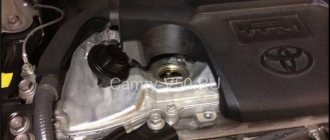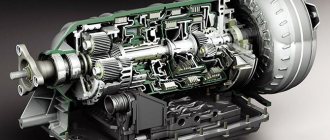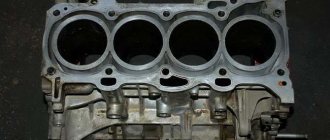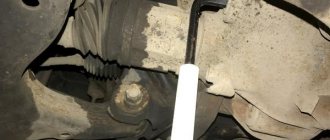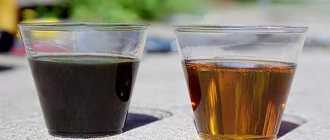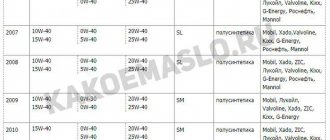Which oil is best for the Toyota Camry - this question, perhaps, worries the owners of a 5-seater sedan more than others. The legendary Japanese car Toyota Camry is assembled at car factories in Japan, the USA, Australia, and Russia. Today the production of the ninth generation is underway. Starting from the fifth generation, it is equipped with a gasoline engine, and the hybrid modification is also especially popular in its homeland. In Russia, the model consistently ranks high in the ranking of best-selling cars, which is partly due to the presence of reliable gasoline engines in the line of power units.
About tolerances
Gasoline engines:
- 6AR-FSE, 2AR-FE, 2GR-FKS, 1AZ-FE, 2AZ-FE, 2GR-FE, 1MZ-FE, 5S-FE, 3VZ-FE
Diesel engines:
- No
The car manual says that 2.0 and 2.5 liter engines (6AR-FSE and 2AR-FE) should be filled with Toyota branded universal lubricant of SM, SN API categories. Engines installed in cars made before 2015 must be filled with original oil with a tolerance of at least SM. Only synthetics of the SN category according to API should be poured into the engines of new cars. According to the ACEA classification, the lubricant must be at least A3/B4, and it is best to use A5/B5 fluid.
Oil approval sheet for Toyota Camry
What oil to pour into a Toyota Camry according to SAE? New power units (manufactured no earlier than 2011) can be filled with 0W-20, for example, Toyota 0W-20 or any other analogue.
Select your Toyota Camry model:
| Camry V40 | Camry V50 |
Toyota Camry 2.5 oil
In practice, car owners prefer to pour oil into the Toyota Camry 2.5 engine with a viscosity of 5W30, however, there are adherents of 0W20 viscosity (this is a standard parameter for cars operated in Japan).
If we proceed from the 5W30 parameter, then the choice is simply extensive, but the original product is, of course, best suited:
- Toyota Motor Oil SM 5 W-30
If we consider 0W20 , then you can choose the original product:
- Toyota 0W20 Formula XS
Original SAE 0W-20 engine oil is designed for the latest Toyota engines. It has high fluidity, provides excellent fuel efficiency and the best environmental performance. Should be used only for those Toyota car models for which its use is recommended in the Owner's Manual.
If you are not a supporter of the original oil, then you can use an analogue from the Belgian manufacturer WOLF:
- Wolf Ecotech 0W20
How to distinguish original from fake
In addition to the question of what kind of oil to fill in a Toyota Camry, you need to have an idea of how you can personally distinguish between a high-quality product and a fake of poor quality. In this regard, the Toyota concern devotes a lot of effort and financial resources to protect its quality products from counterfeits.
To do this, the concern’s specialists use the following methods to protect their goods:
- the canister lid has a characteristic and original color that is difficult to fake;
- the plastic from which the canister is made is light gray in color;
- there is a marking at the bottom of the canister with clear symbols;
- There is a characteristic protective inscription on the back of the sticker.
Read more: Swimming pools with sea water in Sochi
Having studied in detail the answer to the question of what kind of oil to fill in a Toyota Camry, it should be noted that it is necessary to use a lubricant taking into account the condition of the car and the mode of its use. In addition, you should listen to the recommendations of automakers. Nowadays, the lubricant market has a fairly wide range of oils so that anyone can choose the brand they need.
The main functions performed by the lubricant in the power unit of this car model
- protect parts from severe overheating;
- provide protection against premature wear of all rubbing parts;
- maintaining oil channels in working order;
- protects the distribution mechanism from rapid wear;
- inhibits the formation of slag and corrosion processes;
- ensures normal operation of the unit even in extreme conditions;
- ensures quick engine starting in winter.
Thus, replacement with a newer one is one of the main conditions for normal engine operation.
How much oil is in a Toyota Camry engine?
How many liters should I fill?
Toyota Camry oil volume is:
- 4.2 liters for 2.0 1AZ-FE engine with filter;
- 4.3 liters for 2.0 2AZ-FE engine with filter;
- 4.7 liters for 3.0 1MZ-FE engine with filter;
- 6.1 liters for 3.5 2GR-FE engine with filter;
- 4.4 liters for 2.0 engines 6AR-FSE, 2AR-FE with filter.
Tip: We recommend that you always keep a small amount of engine oil in reserve, since during the operation of the vehicle it may be necessary to add fluid to the internal combustion engine.
Reasons for increased oil consumption
Each engine consumes a certain amount of consumable fluid during operation, if it is in good working order, this figure is low and almost unnoticeable, but the engine has begun to consume too much, which means that the Camry model is experiencing certain difficulties. Increased consumption does not appear by chance: it is recommended to diagnose the power unit; lost time can lead to serious damage, the correction of which will require serious financial costs.
Not all the oil is removed by oil scraper rings when the engine is running and sent to the sump. A small part of it burns out: for example, for a Camry V40 2.4 manufactured in 2007 or a similar car with an engine capacity of 2.5 liters, the natural consumption is 0.05% - 0.25% of the total amount of liquid.
Consumption on a new engine is practically not noticeable; on used cars, for example, 2007 and older, this process is more relevant, since natural wear and tear occurs, which is why the power unit’s appetite increases greatly. If you replace the engine regularly, but at the same time you have to pour more water with enviable consistency, this means that you need to look for a malfunction. It can be simple or complex. The main causes of complex faults can be the following:
- wear of piston rings. It occurs as a result of friction of parts. If the rings are worn, a gap will appear through which oil will escape through the Camry V40 2.4 exhaust system. If the motor has been overheated, the rings may be stuck. You can notice this by the exhaust, which has acquired a blue tint;
- Cylinder walls can also wear out during vehicle operation. These elements can be bored to a certain size or the block can be replaced completely. The first option is a little cheaper;
- It happens that the Camry V40 2.4 eats oil due to a problem with the valve stem seals. These are seals that may lose elasticity. Replacing them is quite difficult technically, but relatively inexpensive. Complete disassembly of the car engine is not required;
- A common problem on 2007 Camrys is when oil drips from under the cylinder head gasket. The problem arises due to the age of the car. New Camrys usually do not suffer from this problem, but it is still recommended to check the tightness of the bolts. If the car is old, it is recommended to change the gasket. Over time it burns out;
- An increase in consumption can be caused by worn oil seals on the crankshaft. It happens that the seals are squeezed out. Replacing them is quite expensive. This part most often deteriorates due to low-quality engine oil, old age, and low temperatures during operation;
- Camrys have turbocharged engines: if such an engine begins to “eat” oil, the reason may lie in a worn bushing installed in the turbine rotor. In this case, the liquid evaporates very quickly and there is a risk of destroying the engine, since it runs dry;
- The oil filter can also cause a leak. You can find out about this by simply looking under the car: you will see oil stains under it. This usually happens if, after a scheduled replacement on the Camry 40, the filter was not tightened correctly. It is not difficult to correct the situation by simply tightening the filter properly;
- Pay attention to the cylinder head cover; it happens that a leak starts from under it. It is tightened using bolts and they are not always tightened to the end. Poor quality oil is another common reason for frequent oil changes. If you don’t want to spend money on expensive oil, then you can buy Lukoil products - the price is affordable, and the quality is quite good. If oil consumption decreases after replacing with a better quality one, then the reason was precisely the fluid manufacturer;
- affects oil consumption and how many revolutions the engine develops: the higher it is, the more oil is required. That is why motorists with an aggressive driving style need to not only change fluids more often, but also pour them more often.
Reviews
Elena, Irkutsk region. I own a 2014 Camry with a 2.5 engine (181 hp) and an automatic transmission. Surprisingly, I quickly got used to the dimensions of a car with a length of about 4.9 meters, although inconveniences may still arise in tight parking lots. The large sedan is easy to drive, spacious and has a large trunk. I don’t like plastic pseudo-wood in the interior, but this is purely a matter of taste. The car is moving and be healthy, as they say.
Maxim, Ekaterinburg. I have a Camry since 2007, a version with a 2.4 engine (167 hp) and an automatic transmission. In my opinion, this model is one of the most successful in terms of design, well, right on par with the current 2021 generation. That is, my Camry’s appearance is still relevant. Otherwise, the car, of course, has long been outdated - this can be felt by the nature of the ride and periodic breakdowns. In the city I fit 12-14 liters depending on driving style.
Vehicle internal combustion engine lubrication system
There are two main types of motor oils: mineral and synthetic. Mineral oil is obtained by simple purification from the fuel oil fraction of oil. They are characterized by 2-4 times lower cost than synthetic oils, but their quality is much lower. Synthetic oils are produced by catalytic processing of mineral oils in order to increase the uniformity and durability of the oil. Pure mineral oils are not used today in internal combustion engines and gearboxes; they are used only as inexpensive industrial oils for general technical purposes.
Modern motor oils are characterized by sufficient versatility and acceptable quality. The main differences are related to a number of key indicators:
- size of the hydrocarbon skeleton of molecules,
- isomerism of the hydrocarbon skeleton,
- the presence of detergent and anti-adhesive additives based on various nonionic surfactants,
- organometallic compounds that prevent the formation of carbon deposits when oil enters the car cylinder.
Two key indicators of modern motor oils: viscosity and quality. Quality characterizes the molecular weight distribution of hydrocarbons in the oil, as well as the degree of purification from harmful impurities. Partially, the quality of the oil depends on the presence and quantity of additives.
The manufacturer recommends using in Toyota Camry V40 only oils of quality SH and higher (for ICE 1MZ-FE), and oils of at least class SG (for ICE 5S-FE). The viscosity of oils increases with an increase in the length of the hydrocarbon skeleton of oil molecules and with a decrease in the content of side groups in oil macromolecules. Viscosity is usually characterized by two numbers: viscosity at room temperature, and viscosity at the operating temperature of the internal combustion engine. Depending on the ambient temperature, the manufacturer suggests using the following table to select the brand of Toyota Camry V40 internal combustion engine oils.
The lower the viscosity of the oil, the lower temperatures it can be used. High viscosity oils (for example, type 20W-50) are recommended for use when operating the Toyota Camry V40 in hot climates and/or in the summer. Toyota 10W-30 SM or Toyota 5W-30 SM oils are usually filled at the manufacturer.
The greatest problems occur when using summer brands of oils in winter, at the time of starting the internal combustion engine. The engine is not yet warmed up, the oil at subzero temperatures has a high viscosity, which leads to high loads on all moving parts of the internal combustion engine and accelerates engine wear. Preheating the internal combustion engine and careful operation somewhat reduce these negative phenomena.
The use of winter oils in summer is especially dangerous when the vehicle is used intensively under high loads. At the same time, the temperature of the internal combustion engine increases, the viscosity of the oil decreases, which worsens the lubrication conditions for moving parts. This increases both abrasive wear and dynamic loads on moving parts (for example, sliding beats at the piston pin landing site). Separately, it should be noted that wear of rubbing surfaces is always present; its exact value depends on many practically unpredictable factors. Therefore, it is recommended to monitor the quality and level of the oil, and change the oil filter and oil if necessary. If the oil on a hot internal combustion engine has a natural color, is transparent, and has a uniform consistency, but the oil level has dropped, then you should add a little oil.
What is the replacement interval?
Toyota recommends changing the oil every 10 thousand kilometers. But keep in mind that, if possible, the oil in the Toyota Camry engine should be completely changed once every 5-7 thousand kilometers. The manufacturer's recommendations are given taking into account the mild Japanese climate and operation of the vehicle in an ideal environment.
How often should you change the oil in a Toyota Camry automatic transmission to avoid major repairs?
When to change
The manufacturer's recommended interval of 10-12,000 km leads to ring sticking, so you need to change the oil only after 5000-6000 km (this frequency will save you more than you would spend on more frequent changes).
This is especially true for those who move mainly around the city. At long intervals, even at 8000 km, problems with deposits and oil burn may appear.
Engine hours
The most optimal guideline for the oil change interval is engine hours: 250 engine hours - under heavy loads (mainly city traffic) and 320 engine hours - if without special loads (highway).
